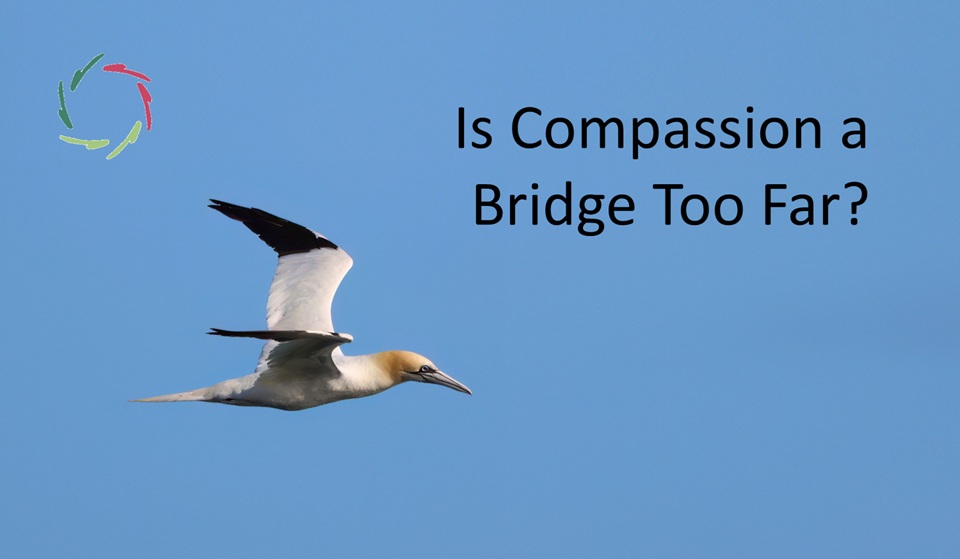Power of Ruthlessness

One should not underestimate this power. It is real and present. To negate or neglect it is not Compassionate. Neither is to just whine about it. Ruthlessness asks for profound answers.
Etymology
‘Ruth’ comes from ‘reuthe,’ meaning ‘compassion.’
Ruthless = without pity or compassion. In AURELIS-talk, one can say it denotes a lack of Compassion. This way, ruthlessness can be seen as the one cause of human suffering.
The lack of Compassion can be very powerful.
This is especially dangerous in a culture that is intensely bent on success. There is no ‘justice’ in this. Ruthlessness can be very powerful, very successful, and destroy the world. Where is the justice in that?
In my view, there is none in us all being equal to the fact of destruction.
Even so
It doesn’t need to be that catastrophic to be detrimental.
According to research, a disproportionate number of people at high levels within organizations are pretty ruthless. That may be a sign of the ruthlessness of a whole culture. As a Chinese proverb goes, “the people get the leaders they deserve.” Qualities at the top may be a distillation of dispersed qualities in ‘the people.’
Of course, the situation, in reality, is diverse. Fortunately, one also sees many Open Leaders. I contend that these will win the day, say, millennium. Meanwhile, the ruthless ones can be pretty successful – look at global news, for instance. One should, therefore, most seriously not equate worldly success with appropriateness.
Whence the power of ruthlessness?
It is one-sightedly oriented to personal success, whatever that may mean. Sometimes, it thrives through the success of the own group against ‘aliens.’ Sometimes, it is more straightforwardly about the success of this one person: me. Note that one doesn’t need to be very intelligent for this.
Through one-sightedness, little stands in the way of this goal that may be reached with razor-sharpness. No moral detractions, for instance. That overtakes others in speed, a big advantage if there are only a few winners.
Of course, the one goal frequently doesn’t feel like ‘success’ on the day of – or after – accomplishment. The ruthless person may feel empty and even more inclined to strive for bigger success. The striving then becomes an act of desperation in an environment of despair.
On the effective side
Ruthlessness is reliable, at least more so than halfheartedness.
Ruthless people may like each other by having their noses in the same direction and each other at the throat.
If the advantage of the one runs parallel to that of the other, they may cooperate even in adversariness. E.g., two leaders of countries at war may not care so much even for their own people while taking advantage of war-fueled anxieties and hatred to consolidate their personal positions as ‘saviors against the enemy.’
What causes ruthlessness?
Intra-individually, the cause is inner dissociation, the state in which the ego acts as a mere-ego, having lost contact with the deeper layers of mental processing. Metaphorically speaking, it is a ‘loss of soul.’
From this, there can also be no overlap with other people, no deep communication, no feeling what others feel just because of their feeling it. This approximates sociopathy/psychopathy, which may be seen as the extreme of ruthlessness.
Compassion against ruthlessness
This is the real thing, so much more than just being somewhat friendly, let alone putting up a friendly face or uttering some friendly-sounding words. Mind that psychopaths are exceptionally apt to use anything ruthlessly. That includes the appearance of friendliness at any time while not caring behind the veil.
This doesn’t diminish the importance of Compassion. On the contrary, it is an admonition to keep putting much effort into it, even when things seem hopeless. In moments of hopelessness, it is a sign of Compassion to keep going. In such moments, one may encounter ruthlessness in an enlightening manner. Maybe it’s a call for deeper attention? Perhaps it is a reaction against a feeling of deep hurt? In these cases, fighting ruthlessness is inefficient and may even be counterproductive.
Also, the way to prevent more ruthless bosses includes increasing the level of Compassion in leadership courses – where it is notoriously challenging – but probably even more so in the general population. Healthcare – the way one heals – is also crucial in this.
Compassion towards the relief of dissociation
is anything but weak. It is daring.
Eventually, this is the path towards the final goal of Worldwide Compassion, heralding the end of ruthlessness.


